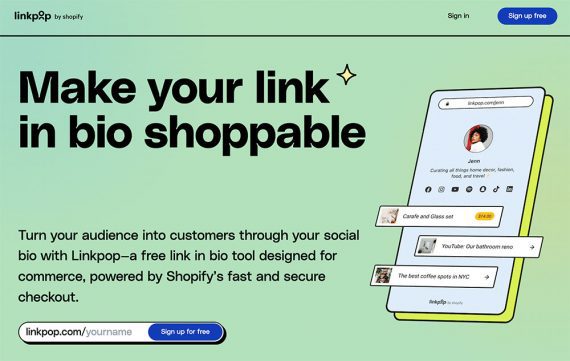Software for ecommerce and creators is beginning to collide. To understand the coming impact, let’s define a couple of terms.
The Creator Economy
The first is “creator economy.” Observers sometimes apply the term to apps alone. For example, journalist Kyle Chayka wrote in a 2021 New Yorker article that the creator economy was “the lattice of new platforms and tools meant to serve creators.”
While that is true in a sense, it is also limiting. Instead, technology forecaster Paul Saffo describes the creator economy as akin to the industrial and consumer economies.
“It is important to keep in mind that economies organize around a challenge. They often arise around overcoming scarcity,” Saffo said. “And it turns out in economies every new abundance creates an adjacent scarcity.”
The industrial economy sought to produce products cheaply to satisfy an emerging middle class. In the producer economy, the worker was the central actor driving growth. Efficiency was the worker’s motto.
The consumer economy replaced the producer economy. According to Saffo, the consumer economy launched the credit card industry and drove advertising to generate demand for the products businesses were producing.
In the next economy, which Saffo argues started in 2008, products are generally available, desire to buy is plentiful, but engagement is scarce. The new central actor is the creator. In a sea of information and noise, creators drive engagement.
Hence the creator economy is not a lattice of software tools but a key financial driver of this era.
We could thus define “creator” as the central economic actor of the next phase of entrepreneurship and growth.
Tool Convergence
Several recent business moves underscore the creator’s importance in our present economic reality.
For example, consider Shopify’s activity in the past couple of years.
- In 2019, Shopify launched its own email marketing and newsletter platform.
- In September 2020, Shopify hired a vice president of creator and influencer programs.
- In 2021, Shopify started marketing to creators, publishing articles such as “Creators, It’s Time to Protect Your Independence” and “The Creator Economy Tech Stack: 160+ Apps, Tools, and Platforms Powering Creator Businesses.”
- March 2022, Shopify launched Linkpop, a link-in-bio tool aimed at creators.
- April 2022, Shopify bought Dovetale, an influencer platform.
Other companies are making similar shifts. For example, Epic Games recently purchased Bandcamp, which offers an ecommerce marketplace for creators.
Over time, don’t be surprised if platform and marketing software companies start modifying their services to appeal to creators. Each company will seek to become the hub for the creator engagement production (again, engagement is scarce in this economy).
Tools for creators will likely fall into categories, including:
- Content creation. Video capture and editing, podcast production, and writing tools.
- Content reformatting. Convert a YouTube video for TikTok; mash-up blog posts for an ebook.
- Audience attraction. Social media platforms, websites, landing pages, public relations, and guest posting.
- Audience engagement. Content, email messaging, text messaging, social media messaging, and events.
- Ecommerce. Most creators will start by selling digital products, but physical products will follow.
- Sponsorship management. Affiliate and advertising management.
Certainly some software tools address these needs already, but ecommerce and marketing platforms could fill many of the roles, too.
Using the tools it already has, Shopify could help creators with ecommerce, audience attraction, email newsletters, and sponsorship management.
Email marketing software companies are also well positioned. Many already have audience attraction and engagement tools, ecommerce for digital products, and landing page and website capabilities.
Consider MailChimp. In 2022, it’s much more than email alone, offering:
- Email marketing,
- Landing pages,
- Websites,
- Ecommerce in software-as-a-service and open source,
- Social media posting,
- Content creation tools.
And the company has started to market to creators. MailChimp’s online publication, Courier, has published many creator-focused articles.
This trend could accelerate as more software businesses aim to make their company a creator hub.





